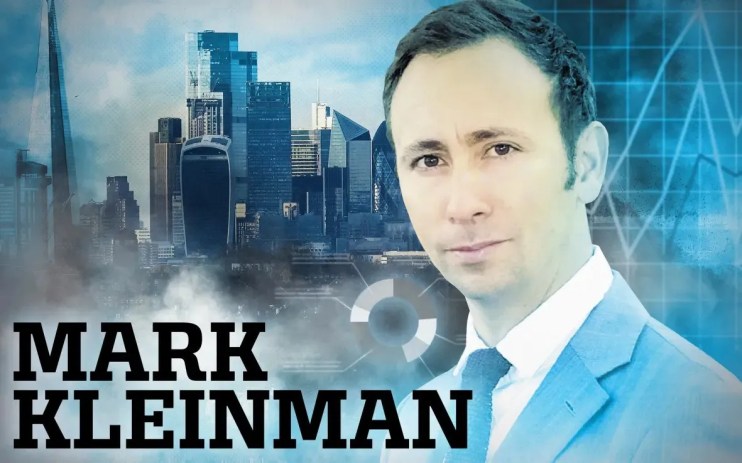Mark Kleinman: This week’s must-read column

Sky News’ City Editor Mark Kleinman writes a weekly column for City A.M., this week on the planned football regulator and NatWest’s new leadership team
They think it’s all over – it isn’t yet, not by a long way. With apologies to the late Kenneth Wolstenholme, the legislation published by the government last week to pave the way for an independent football regulator leaves as much to be desired as Saturday’s England performance against Brazil.
The bill is so flawed it’s hard to know where to start, but here’s it’s most obvious deficiency: it does nothing to resolve the impasse that has prevented a financial redistribution deal being agreed between the Premier League and English Football League over the last year. Specifically, the bill has no regard for the ability of top-flight clubs to meet their financial commitments under such a deal, and imposes no conditions on how lower league clubs would use the proceeds.
Second, the explanatory notes to the bill make clear that where the “IFR [Independent Football Regulator] is making a determination about a new or incumbent owner…[it] requires the IFR to have regard to the foreign and trade policy objectives of the UK government”.
This surely deals a sucker-punch to the notion that the IFR would be independent, and raises further questions about the extent to which the government might lean on the regulator to approve a deal where a prospective owner is from a state with which it wants to cultivate trade ties.
Thirdly, the costs of the levy to fund the new watchdog should, according to the bill, be paid according to “the differing financial resources of each licensed club, which may include…a club owner’s financial circumstances”. By this reckoning, Newcastle United’s majority-owner should probably be responsible for 90% of the overall bill? Even Denise Coates, the owner of Stoke City, which may be playing League One football next season, would be on the hook for a decent chunk given the size of her family’s dividends from Bet365.
More broadly, the bemusing thing about the bill is that much of what it provides for, such as the ban on clubs participating in a breakaway league, is already covered under existing rules which do not impose unnecessary costs on the industry.
Football executives are raising profound concerns about the implications of the legislation, which the prime minister has hailed as delivering the future framework for English football that fans deserve. On this evidence, he must believe fans deserve very little indeed.
Welcome to your very own version of the 30% Club, NatWest Group. This week’s milestone in Britain’s relationship with the banks it bailed out in 2008 deserves more than a passing comment.
NatWest crosses rubicon as freedom looms
On Monday, a trading plan launched to drip NatWest stock into the hands of private investors meant that taxpayers’ stake in the company made infamous by Fred Goodwin fell below 30%.
Amid the noisy preparations for Jeremy Hunt’s retail offer of shares in the bank, slated for the summer, the crossing of this threshold is a key moment. For the first time in 16 years, the government is no longer a controlling shareholder in NatWest in the context of rules imposed by the UK Listing Authority.
In one sense, that’s cosmetic, affecting matters like the separate disclosure of voting decisions at NatWest’s annual meeting. In another, though, it’s material – a clear sign that the end is in sight for taxpayers’ too-intimate relationship with the high street bank.
Last week, NatWest asked shareholders to approve an increase in how much of its share capital it can buy back off-market from the Treasury in a 12-month period, from 4.99% to up to 15%.
Allied to a dual retail and institutional offering, it’s not inconceivable that the government will have sold out more or less entirely by the end of next year.
That throws up another set of questions for NatWest’s new management team, led by chairman Rick Haythornthwaite and chief executive Paul Thwaite.
Chief among them is their blueprint for growing a bank which has spent most of the last two decades shrinking. Investment bankers argue that Virgin Money’s mix of SME lending and mortgage assets would make a ripe combination for NatWest, although I understand it is not on the board’s agenda. I would be surprised, though, if a front-footed approach to M&A did not feature prominently under a leadership team with more of an opportunity to grow the company than any since the ill-fated days of Goodwin.
Plotting an interpath towards an exit
Relations between KPMG and its former restructuring arm – now known as Interpath Advisory – have been largely cordial since the latter was spun out of the former in 2021.
A two-year non-poaching agreement between them has since come to an end, so an internal announcement last week that Interpath has poached Baréma Bocoum, a KPMG restructuring expert, to its group executive committee, is unsurprising. Bocoum, who has worked on transactions involving Technicolor and Casino, the French retailer, is, I understand, one of a string of planned hires from KPMG’s European restructuring operations, with more planned in Germany and, possibly, Spain.
In the absence of the more draconian elements of audit reform pledged by ministers after the collapses of BHS and Carillion, it’s tempting to look now at the decisions of Deloitte and KPMG to offload their insolvency specialists to independent corporate entities as having been made with undue haste.
That would be a mistake, however. Interpath’s majority-owner, HIG Europe, is perennially rumoured to be seeking to offload the business, although well-placed insiders say that’s unlikely for at least another 12 months. Scaling up faster while resisting pressure to reduce margins is the only logical path to a handsome exit valuation.
